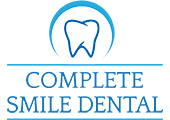The most common oral health problems for adults aged 60+ include:
• Dry mouth: Dry mouth is the result of reduced saliva production. This oral condition is often a side effect caused by use of prescription medication or certain medical conditions. Dry mouth affects about 30% of seniors. If left untreated, chronic dry mouth can lead to tooth decay, cavities and gum disease.
Your dentist can assist you with various dental options or medications to help prevent dry mouth and any associated conditions. You can also relieve a dry mouth by sipping water to keep your mouth and body adequately hydrated.
• Tooth sensitivity: A lifetime of wear and tear on your teeth and gums can leave them more sensitive to stimulation by hot, cold, sugary or acidic food and beverages. As you get older, receding gums may result in the exposure of your tooth root surfaces below the gum line. These areas of your teeth aren’t protected by enamel, and may develop more sensitivity, as well as susceptibility to decay and cavities.
Sensitive teeth may also be a sign of other oral health issues such as tooth fractures and cavities which is why regular dental check-ups are an important part of early diagnosis and prompt treatment to prevent tooth loss.

• Gum disease (periodontitis): This serious oral disease can develop over many years. Symptoms start appearing after the age of 40. If this inflammatory condition spreads to your gums and underlying bone, then you are at risk of tooth loss. Keeping your teeth and gums free of plaque, and attending regular dental checkups are important preventative measures.
While home oral care can reduce symptoms, only your dentist can treat gum infections. Tooth loss can be prevented via a number of effective dental treatment options. Regular dental checkups can ensure that symptoms of gum disease and any other health condition are identified and treated early, before irreversible damage occurs to your teeth, gums and general health.
• Secondary cavities: These cavities develop in teeth that have already been affected by the same condition. They usually form on areas adjacent to the filling of the affected tooth, or on tooth root surfaces that have been exposed by recessed gums. If the new cavity forms under an existing filling, it may need to be replaced. Other areas of your tooth surfaces that are vulnerable to hidden plaque and decay include tiny, hard-to-reach spaces around and under dental restorations such as crowns, inlays or onlays.
Your dentist can check and identify any area of your teeth surfaces that may be at risk of secondary cavities, and help you to develop a cleaning strategy to help keep them clean, hygienic, and free from food debris, plaque and decay.
• Having other existing health conditions: There are proven links between oral health conditions and other general health conditions such as diabetes, Alzheimer’s, heart disease, cancer and low bone mineral density. Having the last condition, can increase your risk of loose teeth, tooth loss and poorly fitting dentures since decreasing bone density can affect the shape of the bones in your face. By improving your bone density, you can prevent tooth damage or loss, as well as osteoporosis. If you have diabetes, you may be more susceptible to gum infection and disease which in turn, increases diabetes complications.
Both your doctor and dentist may need to co-ordinate on their treatment for your oral and general health conditions that are linked. Be sure to fully inform and update your dentist regarding any health issues and treatment you receive from your doctor, and vice-versa, so that your special oral health needs are treated properly.
• Denture care: It is important to maintain proper hygiene and care of your denture and partial dentures twice daily, just like your regular teeth. If you don’t, bacteria, plaque, tartar and food stains can develop all over them. Wearing denture affected this way, can irritate and infect the surrounding gum tissue, especially if they become poorly-fitting.
Ensure you brush your dentures, remaining natural teeth and mouth twice daily with the appropriate toothpaste and toothbrush. Dentures can be soaked overnight in special denture cleaner which is good chance for your gum tissues to take a break and “breathe”. Don’t forget to give your gums a good rinse and massage with a soft toothbrush. Normal brushing and flossing routines should be followed for regular teeth. Rinsing after a meal is also helpful for washing away food debris.
Going for regular dental checkups is a good opportunity for your dentist to evaluate your dentures, and check surrounding oral tissues for signs of inflammation and irritation.
• Poor home oral health and hygiene: If you have a medical condition that affects your hand, finger and wrist dexterity, such as arthritis, you may find it hard to hold a tooth or denture brush, and perform brushing/flossing activities properly.
Toothbrushes and other dental tools can be modified to accommodate your specific needs, so that you can perform your daily oral care activities. Your dentist can assess your needs and provide a solution to ensure that you can continue to conduct your daily home oral care and hygiene activities successfully.
• Darker teeth: A common cause of tooth discolouration is staining by food and beverages. But as you get older, they may also change colour because of changes in the dentin in your inner tooth structure. Additionally, as you grow older, your protective tooth enamel thins out revealing the darker coloured dentine beneath. Some medications contain ingredients that are absorbed into the teeth’s hard tissue, resulting in a greyish hue.
Unfortunately, teeth whitening treatments are usually ineffective when it comes to treating internal tooth discolouration associated with aging. However, if you are still concerned about this type of teeth discolouration, there are dental options such as porcelain veneers and composite tooth bonding that can give you a brighter smile.
Please don’t hesitate to call our friendly staff to raise any of your concerns regarding the oral health issues listed above, and remember to inform us whenever your medication changes, at your next visit.


